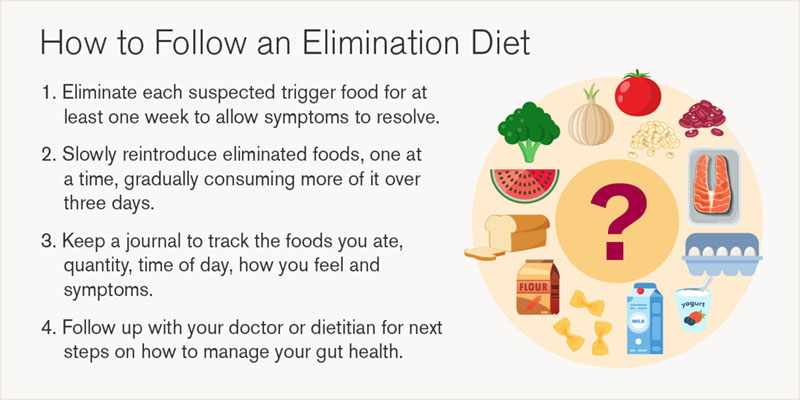What to Eat for Crohn's Disease and Ulcerative Colitis
February 6, 2025
Categories: Digestive Health
 By Dejan Micic, MD, Digestive Health Program
By Dejan Micic, MD, Digestive Health Program
Crohn's disease and ulcerative colitis are the most common types of inflammatory bowel diseases (IBD). These conditions cause chronic inflammation of your digestive tract that often lead to diarrhea, rectal bleeding, abdominal pain, fatigue, and weight loss. The main difference between the two is the location of inflammation. Crohn's disease can appear anywhere in the gastrointestinal tract, most commonly the end of the small intestine, whereas ulcerative colitis only affects the large intestine.
Inflammation within the small intestine can impact an individual's diet and food choices and similarly diet is thought to play a role in the development of inflammation. However, before making any significant dietary changes, you should speak with a doctor or dietitian who specializes in IBD to create a personalized diet that promotes a healthy gut and improves your small bowel or colon health.
"For those managing Crohn’s disease or ulcerative colitis, diet can play a crucial role in reducing symptoms and maintaining a better quality of life. Eliminating potentially pro-inflammatory foods can reduce the risk of disease relapse. One exciting area of research is looking into the use of dietary supplements to reduce inflammation," says Dr. Dejan Micic, MD, a gastroenterologist at Loyola Medicine.
Eliminate trigger foods to alleviate IBD symptoms
Not everyone shares the same dietary sensitivities, although there are common foods and beverages to avoid with ulcerative colitis and Crohn's disease. The following food triggers are known to increase the symptoms of IBD:
- Added sugars and sugary foods
- Alcohol
- Caffeinated coffee/tea, energy drinks, other caffeinated beverages
- High lactose-containing foods, such as cow's milk
- High-fat foods, such as red meat and dairy products
- Sugar alcohols and artificial sweeteners
- Sugar-sweetened beverages
To help determine your possible triggers, eliminate one of these foods from your diet and wait to see if your symptoms improve. If not, remove another food and continue the process until you find which food(s) are triggering your IBD symptoms.
"A trial-and-error approach to eliminating specific foods can be incredibly effective for IBD patients. Particularly with overly processed foods, concentrated sugars and dairy products, symptoms of bloating, diarrhea and excess gas production are common,” says Dr. Micic.

Eat foods that reduce inflammation to improve gut health
While some foods can make inflammation worse, there are other foods that reduce inflammation over time when consumed frequently. Foods that promote gut health, include:
- Fruits, such as bananas, raspberries, applesauce, blended fruit
- Vegetables, such as squashes, fork-tender cooked carrots, green beans
- Foods rich in omega 3 fatty acids, such as fatty fish (salmon, tuna, mackerel, etc.)
- Cooked and cooled or reheated starches, such as potatoes, sweet potatoes, rice, oatmeal
- Leafy green vegetables (try cooking and cutting into small pieces or blending them into smoothies)
"When it comes to inflammatory bowel disease, a focus on foods that reduce inflammation is key. Incorporating foods like fatty fish, cooked vegetables, and certain fruits can help decrease digestive stress and support gut health over time. A common misconception in IBD is the elimination of high-fiber foods, which is actually a way to potentially reduce inflammation and is beneficial to gut health," says Dr. Micic.
For people living with IBD, eating small frequent meals, slowing down and thoroughly chewing your food, staying hydrated, and trying soups and smoothies, can also make a difference.
To learn more, visit loyolamedicine.org/nutrition-services.
Dejan Micic, MD, is a gastroenterologist at Loyola Medicine, with a special interest in inflammatory bowel disease, including Crohn's disease and ulcerative colitis. Dr. Micic earned his medical degree from the University of Wisconsin School of Medicine and Public Health. He then completed his residency at the University of Michigan Health System.
Make an appointment with Dr. Micic or another gastroenterology specialist by self-scheduling an in-person or virtual appointment using myLoyola.
